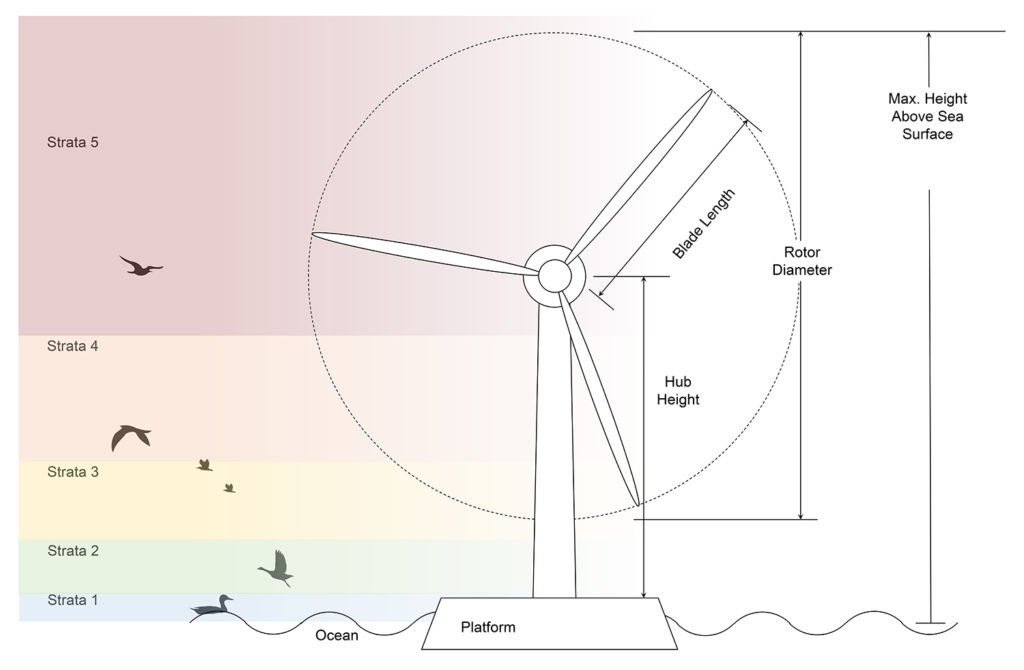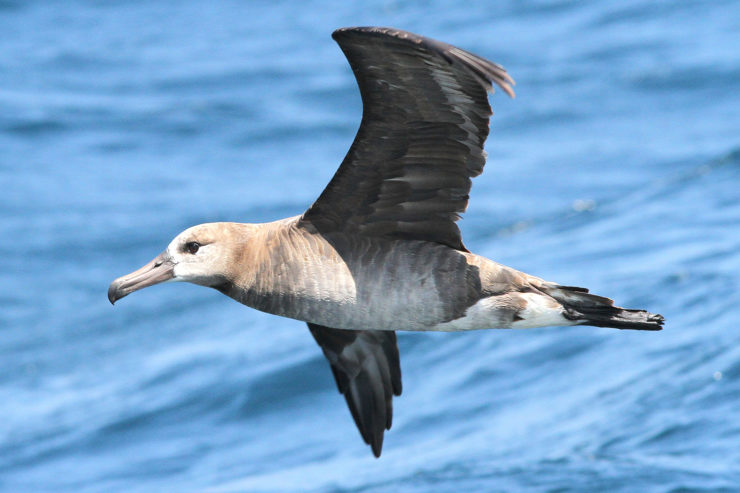Seabird species may be at risk for collision with, or displacement by, offshore wind turbines. Existing seabird distribution models describe the density and species composition in the California Current, and are used to identify hot spots for seabird activity. However, these models do not describe the three-dimensional distribution of flight behavior above the sea surface. Understanding flight height is key to accurately modeling the risk of direct interactions between seabirds and offshore wind turbines, and is the focus of our latest offshore wind feasibility study.
Seabird flight height is known to vary as a function of species and wind speed — so this study will integrate data-driven existing 2D species distribution models, species-specific seabird flight heights as a function of wind speed, and the latest wind resource data, to make a 3D probability map of seabirds in space. This will allow us to model the risk of different turbine designs and power outputs, for locations offshore California and southern Oregon.

Our two-year project will kick off in the summer of 2020, and is being funded through a $500,000 grant through the California Energy Commission’s Electric Program Investment Charge (EPIC). H. T. Harvey & Associates ecologists will synthesize 2D seabird species distribution data from records on more than 120 ship-based and aerial surveys spanning the period of 1976-2016 and provide flight-height data for all offshore species occurring in the study area, as well as contribute to model development. The Schatz Center will use the seabird model to evaluate the relative risk of seabird impacts and power production potential at sites off California, to optimize the design and location of potential wind farms.
- Learn more about our offshore wind feasibility research for the California north coast.
- If you’d like to receive emails about our offshore wind research and details on related webinars and presentations, please send us an email at windstudies@schatzcenter.org.















